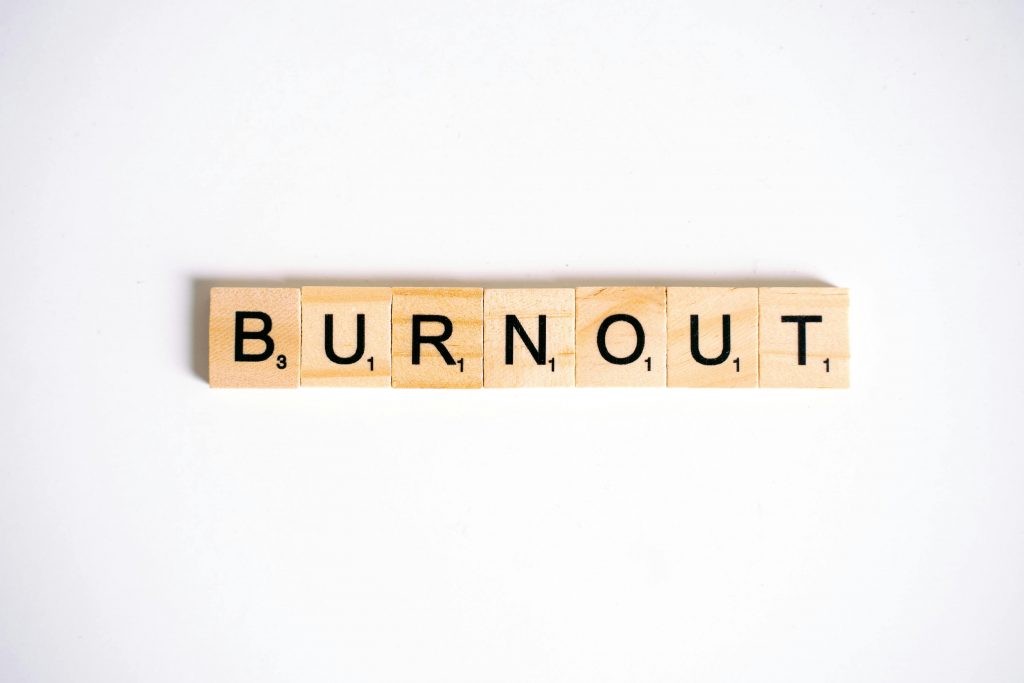In our relentlessly fast-paced world, the weight of daily demands often feels insurmountable. We juggle careers, personal lives, financial pressures, and an endless stream of information, leading many of us down a path towards chronic stress and, ultimately, burnout. Burnout isn't just a bad day; it's a state of emotional, physical, and mental exhaustion caused by prolonged or excessive stress. It can manifest as feelings of cynicism, detachment, reduced efficacy, and a profound lack of energy and motivation. The good news? It doesn't have to be a permanent state. This comprehensive guide is designed to equip you with powerful, positive coping skills, transforming your experience from overwhelming burnout into significant breakthroughs. We'll delve deep into effective coping strategies, explore various stress coping mechanisms, and show you how to cultivate healthy coping skills that foster genuine resilience and well-being. By understanding and implementing a diverse range of emotional coping strategies and practical anxiety coping techniques, you'll learn to not only manage stress but to thrive in its presence, building robust resilience building techniques along the way.
Understanding the Landscape of Stress and Burnout
Before we can effectively combat stress and burnout, it's crucial to understand what we're up against. Stress, in its simplest form, is your body's reaction to a demand or threat. When you perceive danger, whether real or imagined, your body releases hormones like adrenaline and cortisol, preparing you for 'fight or flight.' This acute stress response is vital for survival. However, modern life often subjects us to chronic stress, where this response is triggered repeatedly or remains elevated for extended periods without a chance for recovery. Chronic stress can lead to a host of physical and mental health problems, including high blood pressure, weakened immune system, anxiety disorders, and depression.
Burnout is a specific syndrome conceptualized as resulting from chronic workplace stress that has not been successfully managed. The World Health Organization (WHO) characterizes burnout by three dimensions: feelings of energy depletion or exhaustion; increased mental distance from one's job, or feelings of negativism or cynicism related to one's job; and reduced professional efficacy. While often associated with work, burnout can also stem from caregiver roles, intense academic pressure, or other prolonged, high-demand situations without adequate resources or support. Recognizing the signs early – persistent fatigue, irritability, difficulty concentrating, feelings of hopelessness, changes in sleep or appetite, and frequent headaches or stomach problems – is the first critical step towards dealing with stress effectively and implementing proactive stress management strategies.
The Spectrum of Coping: Adaptive vs. Maladaptive
Humans inherently seek ways to cope with discomfort and challenge. However, not all coping mechanisms are created equal. It's essential to distinguish between maladaptive and adaptive, or positive, coping strategies. Maladaptive coping often provides temporary relief but ultimately exacerbates the problem or creates new ones. Examples include: avoidance (procrastination, ignoring problems), substance abuse (alcohol, drugs, excessive caffeine), excessive eating, social withdrawal, passive aggression, or overworking to avoid other issues. While these might offer a momentary escape, they prevent true resolution and can hinder your ability to improve coping skills in the long run.
Our focus, however, is on adaptive or positive coping. These are the healthy coping skills that help you confront stressors constructively, manage your emotional responses, and promote long-term well-being. They empower you to learn, grow, and strengthen your capacity to navigate future challenges. Understanding the different types of coping strategies is key to building a robust personal toolkit. Broadly, coping strategies can be categorized as problem-focused or emotion-focused. Problem-focused coping aims to eliminate or reduce the stressor itself (e.g., time management, problem-solving). Emotion-focused coping, on the other hand, aims to manage the emotional reaction to the stressor when the situation is beyond your direct control (e.g., meditation, seeking social support). A balanced approach, utilizing both problem-focused and emotion-focused stress coping mechanisms, is often the most effective way to address the complexities of modern stress.
Pillars of Healthy Coping Skills
Developing a diverse repertoire of healthy coping skills is like building a strong, versatile bridge over troubled waters. The more tools you have, the better equipped you are to cross any chasm. Here, we explore key categories and examples of effective coping strategies.
Emotional Coping Strategies
These techniques focus on processing and regulating your feelings in response to stress, without suppressing or being overwhelmed by them.
- Mindfulness and Meditation: Practicing mindfulness means bringing your attention to the present moment without judgment. This can be as simple as observing your breath, sensations, or thoughts as they arise. Meditation, a formal practice of mindfulness, has been shown to reduce anxiety, improve emotional regulation, and even alter brain structure in ways that enhance well-being. For individuals experiencing heightened anxiety, specific anxiety coping techniques like body scan meditations or guided imagery can be incredibly powerful. They help you observe anxious thoughts without becoming entangled in them, creating a sense of distance and calm.
- Journaling: Putting your thoughts and feelings onto paper can be a profoundly cathartic and insightful experience. Journaling allows you to externalize your anxieties, frustrations, and hopes, helping you to identify patterns in your thoughts, pinpoint stressors, and process complex emotions. It's a non-judgmental space to explore your inner landscape, which is a core component of many emotional coping strategies. Consider a gratitude journal to shift focus, or a free-form journal to simply let your thoughts flow.
- Talking it Out (Social Support & Therapy): Humans are social creatures, and connection is a potent antidote to stress. Sharing your burdens with a trusted friend, family member, or mentor can provide perspective, validation, and practical advice. Knowing you're not alone in your struggles is a powerful form of relief. When stress or burnout becomes persistent and overwhelming, seeking professional help from a therapist or counselor is a sign of strength, not weakness. They can provide specialized stress coping mechanisms and personalized anxiety coping techniques, helping you unpack deeper issues and develop tailored coping strategies.
- Deep Breathing Exercises: When stressed, our breathing becomes shallow and rapid. Consciously slowing down and deepening your breath activates your parasympathetic nervous system, signaling to your body that it's safe to relax. Techniques like diaphragmatic breathing (belly breathing) or the 4-7-8 method (inhale for 4, hold for 7, exhale for 8) are quick, accessible anxiety coping techniques that can be used anywhere, anytime to bring immediate calm.
- Practicing Gratitude: Shifting your focus to what you're thankful for can profoundly alter your emotional state. Regularly acknowledging the positive aspects of your life, no matter how small, can reduce negative emotions and foster a more optimistic outlook. This isn't about ignoring problems, but about balancing your perspective, which is a key aspect of emotional coping strategies and overall mental resilience.
Physical Coping Strategies
Our mental and physical health are inextricably linked. Neglecting your body will inevitably impact your mind's ability to cope.
- Exercise and Physical Activity: Regular physical activity is one of the most effective stress coping mechanisms. It releases endorphins, natural mood elevators, and provides a healthy outlet for pent-up energy and frustration. Whether it's a brisk walk, a high-intensity workout, yoga, or dancing, find an activity you enjoy and make it a consistent part of your routine. Exercise not only helps in dealing with stress but also improves sleep and overall physical health.
- Adequate Sleep: Sleep deprivation severely impairs your cognitive function, emotional regulation, and ability to handle stress. Prioritizing 7-9 hours of quality sleep each night is non-negotiable for effective stress management strategies. Establish a consistent sleep schedule, create a relaxing bedtime routine, and optimize your sleep environment to improve this fundamental coping skill.
- Balanced Nutrition: The food you eat significantly impacts your mood, energy levels, and brain function. A diet rich in whole foods, fruits, vegetables, lean proteins, and healthy fats supports optimal brain health and can help stabilize mood. Conversely, excessive sugar, processed foods, and caffeine can exacerbate anxiety and contribute to energy crashes, making it harder to engage in healthy coping skills.
- Progressive Muscle Relaxation (PMR): This technique involves tensing and then relaxing different muscle groups throughout your body. By systematically doing this, you become more aware of the sensation of relaxation and can consciously release tension. PMR is an excellent anxiety coping technique that can be done before bed to aid sleep or during the day to release physical manifestations of stress.
Cognitive Coping Strategies
These strategies involve changing your thought patterns and problem-solving approaches to better manage stressors.
- Cognitive Reframing: Our perception of events often dictates our stress response more than the events themselves. Cognitive reframing involves consciously challenging negative or unhelpful thought patterns and reinterpreting situations in a more positive or realistic light. For instance, instead of seeing a setback as a failure, you might reframe it as a learning opportunity. This is a core stress management strategy that empowers you to control your narrative and improve coping skills by altering your internal dialogue.
- Setting Boundaries: A significant source of stress comes from feeling overwhelmed by external demands. Learning to say 'no' to additional responsibilities, setting limits on your time and energy, and protecting your personal space are crucial healthy coping skills. Boundaries, whether personal or professional, are not about being unhelpful but about self-preservation and preventing burnout. They are a powerful form of problem-focused stress coping mechanisms.
- Problem-Solving Techniques: When faced with a clear stressor, an active problem-solving approach can be highly effective. This involves breaking down the problem into smaller, manageable steps, brainstorming potential solutions, evaluating their pros and cons, and then implementing the chosen solution. This direct engagement can reduce feelings of helplessness and increase your sense of control, making it a vital component of types of coping strategies.
- Prioritization and Time Management: Feeling overwhelmed often stems from a lack of clarity on what needs to be done. Techniques like the Eisenhower Matrix (urgent/important), ABC analysis, or simply making a detailed to-do list can help you prioritize tasks and allocate your time more effectively. By reducing the chaos, you actively improve coping skills by mitigating a significant source of daily stress, demonstrating proactive stress management strategies.
Social Coping Strategies
Leveraging your social environment and relationships can provide immense support and perspective.
- Nurturing Relationships: Investing time and effort into meaningful relationships with friends, family, and community members creates a robust support network. These connections offer emotional sustenance, practical help, and a sense of belonging, all of which are vital for dealing with stress and fostering overall well-being. Shared laughter, empathy, and mutual support are powerful emotional coping strategies.
- Volunteering and Helping Others: Shifting your focus outwards can be a remarkably effective way to gain perspective and reduce self-absorption. Volunteering for a cause you care about, or simply offering help to a neighbor, can provide a sense of purpose, boost your mood, and remind you of your capacity to make a positive impact. This can be a subtle yet profound stress coping mechanism.
- Seeking Professional Help: As mentioned earlier, there are times when self-help isn't enough. Therapists, counselors, coaches, or support groups offer structured environments and expert guidance for developing advanced coping strategies and resilience building techniques. If you feel persistently overwhelmed, sad, or unable to cope, reaching out is a courageous step towards recovery and growth.
Applying Coping Skills in Daily Life: From Theory to Practice
Knowing about healthy coping skills is one thing; consistently applying them is another. The journey from burnout to breakthrough requires intentional practice and integration of these stress management strategies into your daily routine.
Developing a Personalized Coping Plan
Start by identifying your primary stressors and how they typically manifest (physically, emotionally, cognitively). Then, review the types of coping strategies discussed and select a few that resonate with you and seem most applicable to your challenges. For example, if you struggle with anxiety coping techniques in social situations, perhaps deep breathing and cognitive reframing would be good starting points. If workplace demands lead to burnout, boundary setting and time management might be key coping strategies. Your plan should be dynamic, evolving as you learn what works best for you. Don't try to implement everything at once; choose one or two skills to focus on for a few weeks, then gradually add more.
Practice Makes Perfect: Consistency is Key
Just like building muscle, resilience building techniques and coping skills strengthen with consistent use. Make a conscious effort to integrate your chosen strategies into your daily life. Schedule time for mindfulness, commit to regular exercise, or dedicate a few minutes each day to journaling. The more you practice, the more these responses become automatic, helping you to improve coping skills naturally. When a stressful situation arises, pause and consciously choose a coping skill rather than reacting impulsively. This intentional pause is itself a powerful stress coping mechanism.
Recognizing When to Pivot or Seek Additional Support
Self-awareness is paramount. Pay attention to your body's signals and your emotional state. If a particular coping strategy isn't working, or if your stress levels remain high despite consistent effort, it's okay to pivot. Explore different types of coping strategies or consider seeking additional support. This might mean talking to a different friend, trying a new form of exercise, or consulting with a mental health professional. There's no shame in seeking help; it's a proactive and responsible step in dealing with stress effectively.
The Role of Self-Compassion
Learning to cope and overcome burnout is not a linear process. There will be good days and bad days, moments of triumph and moments of struggle. Throughout this journey, self-compassion is vital. Treat yourself with the same kindness and understanding you would offer a dear friend. Avoid self-criticism when you falter or feel overwhelmed. Acknowledge your efforts, celebrate small victories, and remember that growth is a process, not an event. Self-compassion is a powerful emotional coping strategy that underpins all other efforts to build resilience.
Building Resilience: Beyond Just Coping
While healthy coping skills are essential for navigating immediate stressors, the ultimate goal is to move beyond merely reacting to challenges and to cultivate resilience. Resilience is the process of adapting well in the face of adversity, trauma, tragedy, threats, or significant sources of stress. It means bouncing back from difficult experiences, but it's more than just recovery; it's about growing stronger and more capable as a result of those experiences. All the coping strategies we've discussed contribute to building this inner fortitude.
Key Resilience Building Techniques
- Cultivating Optimism and a Positive Outlook: This isn't about ignoring problems but about viewing challenges as temporary, specific, and external rather than permanent, pervasive, and personal. Optimism allows you to maintain hope and belief in your ability to overcome obstacles, which is fundamental to all resilience building techniques.
- Flexibility and Adaptability: Life is unpredictable. Rigid thinking and resistance to change can amplify stress. Developing the capacity to adapt to new circumstances, adjust your plans, and learn from unexpected turns is a hallmark of resilience. This involves embracing uncertainty and seeing change as an opportunity for growth, a high-level stress coping mechanism.
- Finding Purpose and Meaning: Having a clear sense of purpose or meaning in your life provides a powerful anchor during turbulent times. It gives you something larger than yourself to focus on, helping you to put stressors into perspective and providing motivation to persevere. This is one of the most profound emotional coping strategies.
- Learning from Challenges: Every difficult experience offers a lesson. Resilient individuals actively seek out these lessons, reflecting on what they've learned about themselves, others, and the world. This approach transforms adversity into a catalyst for personal growth, further strengthening your healthy coping skills and overall resilience.
Conclusion
The journey from burnout to breakthrough is a deeply personal yet universally vital one. It's a testament to our innate human capacity for growth and self-improvement. By intentionally embracing positive coping strategies, developing effective stress coping mechanisms, and consistently practicing healthy coping skills, you're not just dealing with stress; you're actively sculpting a more resilient, fulfilling, and joyful life. Remember, this isn't about eliminating stress entirely – an impossible and perhaps undesirable feat – but about transforming your relationship with it. It's about empowering yourself with a robust toolkit of anxiety coping techniques, emotional coping strategies, and practical stress management strategies that allow you to navigate life's inevitable challenges with grace and strength. Commit to taking small, consistent steps to improve coping skills, and watch as your capacity for resilience grows, leading you from the brink of exhaustion to the peak of personal breakthrough. Your well-being is worth the investment. Start today, and reclaim your peace and power. Your guide to a more resilient future begins now.


